
Find Help
More Items From Ergsy search
-

What is ketamine infusion therapy?
Relevance: 100%
-
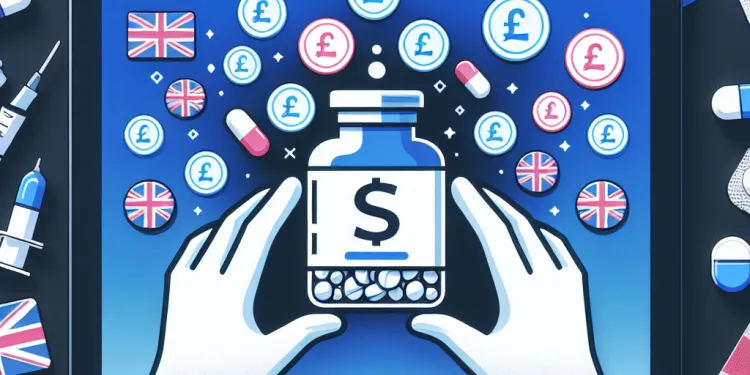
How is ketamine administered?
Relevance: 54%
-

What should I expect during a ketamine infusion?
Relevance: 53%
-
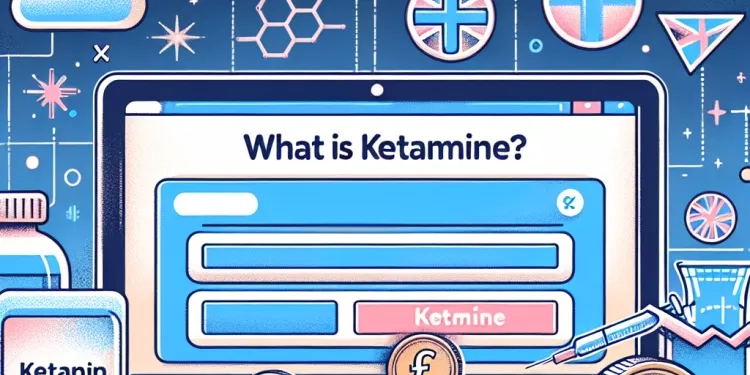
What is Ketamine?
Relevance: 49%
-

What conditions is ketamine used to treat?
Relevance: 46%
-
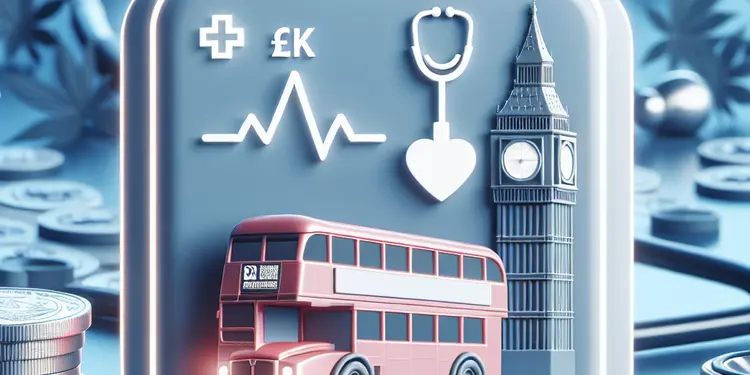
Are there any legal uses for ketamine?
Relevance: 45%
-
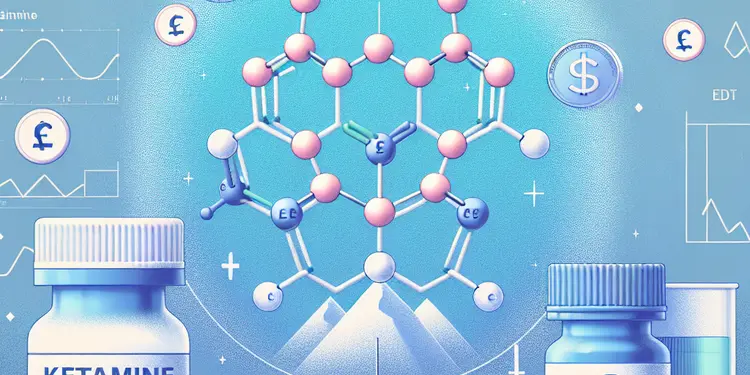
What are the medical uses of ketamine?
Relevance: 44%
-
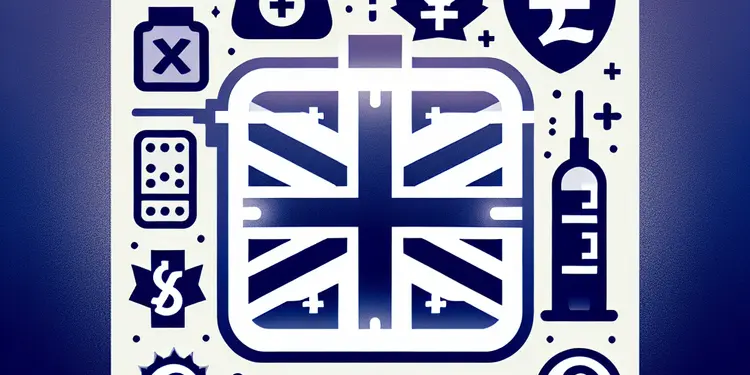
How can I legally obtain ketamine for medical use?
Relevance: 43%
-

How is ketamine different from traditional antidepressants?
Relevance: 43%
-
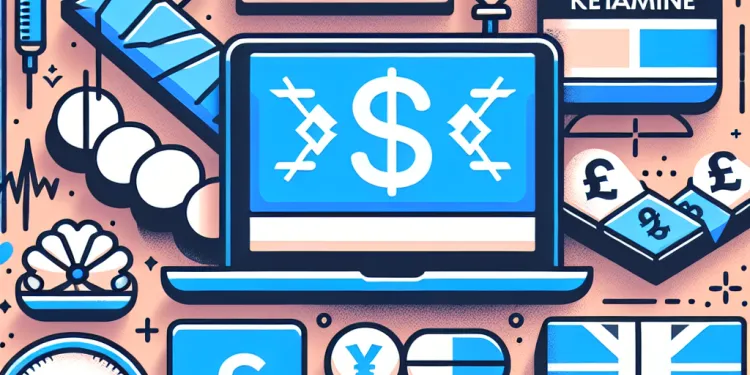
Is ketamine addictive?
Relevance: 42%
-

How does ketamine work?
Relevance: 41%
-
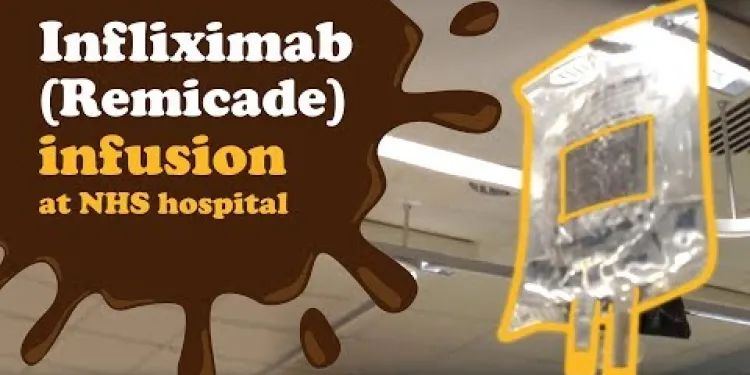
Infliximab infusion (Remicade) for Crohns Disease at Addenbrookes NHS hospital
Relevance: 40%
-
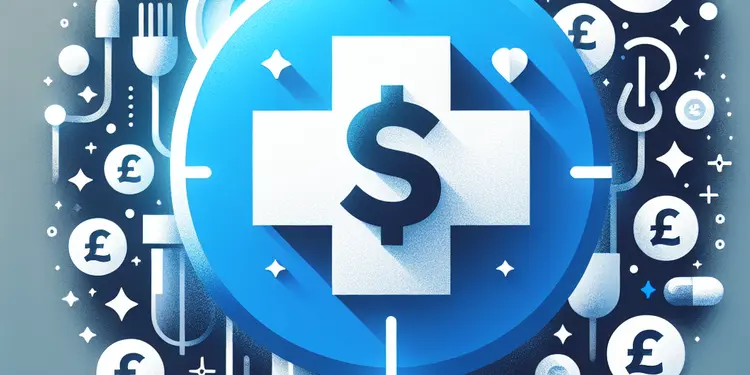
Are there any treatment programs for ketamine addiction?
Relevance: 38%
-

How long do the effects of ketamine last?
Relevance: 38%
-

Is ketamine legal?
Relevance: 38%
-
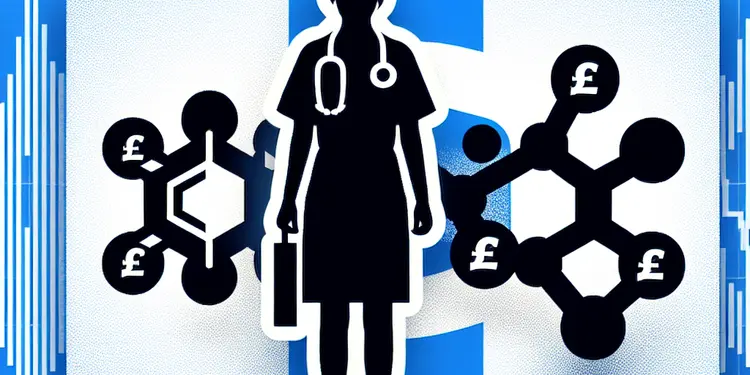
Can ketamine be prescribed for mental health conditions?
Relevance: 38%
-

What is the potential for addiction with ketamine?
Relevance: 36%
-
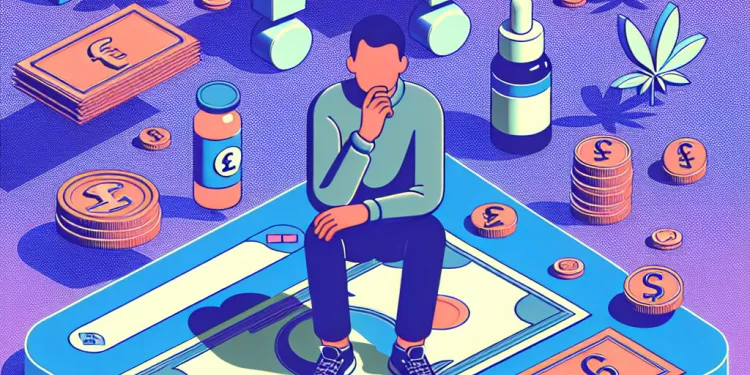
Is ketamine a controlled substance?
Relevance: 35%
-

Is ketamine safe for everyone?
Relevance: 35%
-
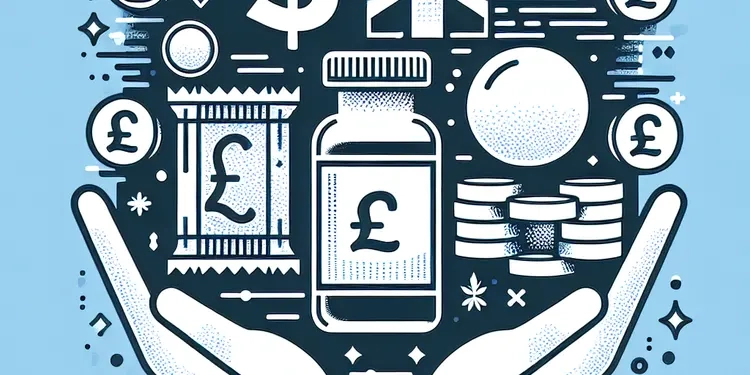
Is Ketamine a Class B drug?
Relevance: 35%
-

What is the legal status of ketamine in Canada?
Relevance: 35%
-

What is the classification of ketamine?
Relevance: 34%
-
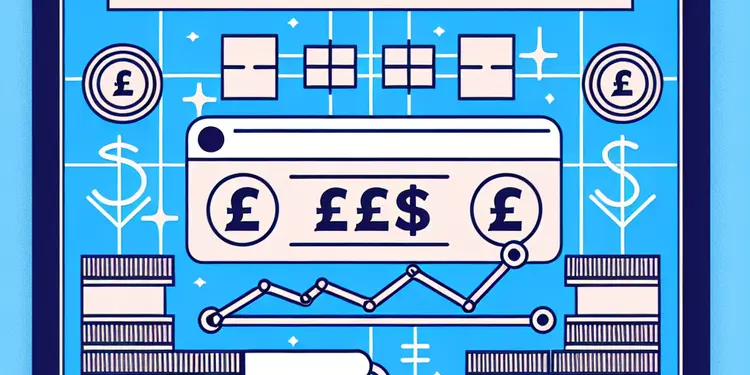
Is the production of ketamine regulated?
Relevance: 34%
-

Is it legal to import ketamine?
Relevance: 34%
-

Is ketamine considered a controlled substance in the United States?
Relevance: 34%
-
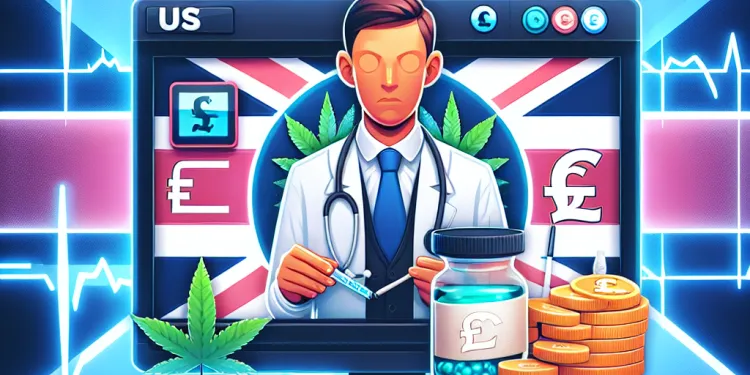
What precautions are necessary when using ketamine?
Relevance: 33%
-

What is the penalty for supplying ketamine in the UK?
Relevance: 33%
-
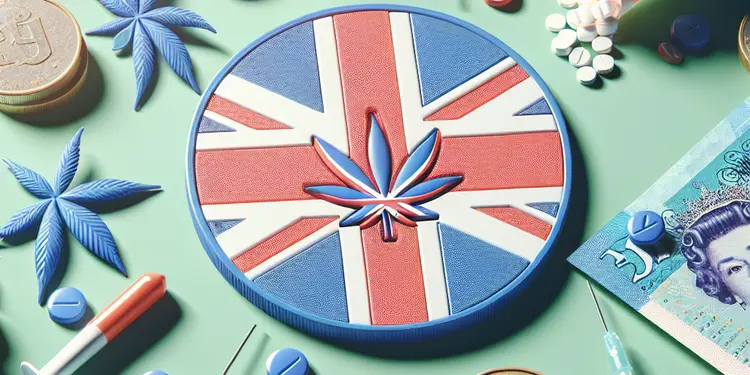
Can ketamine be used for recreational purposes legally?
Relevance: 33%
-

What is the penalty for possessing ketamine in the UK?
Relevance: 32%
-
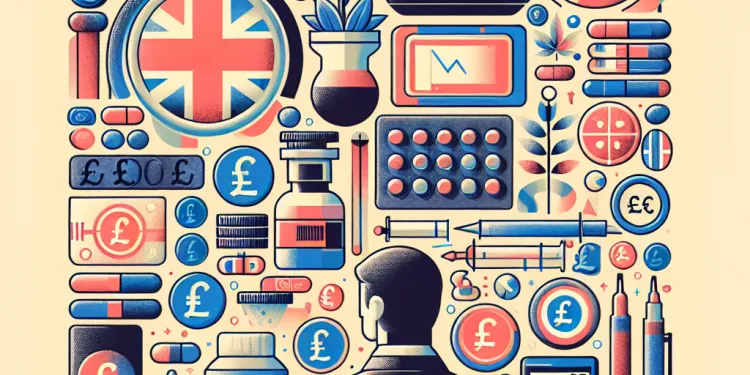
What are the common side effects of ketamine?
Relevance: 32%
-

Does ketamine have long-term effects?
Relevance: 32%
-

How is ketamine used in veterinary medicine?
Relevance: 32%
-

What is the difference between ketamine and esketamine?
Relevance: 32%
-

Does the classification of ketamine differ between countries?
Relevance: 31%
-

What are the known side effects of ketamine usage?
Relevance: 31%
-

What does it mean for ketamine to be a Class B drug in the UK?
Relevance: 31%
-

Has ketamine's classification changed over time?
Relevance: 31%
-

Why was ketamine reclassified from Class C to Class B in the UK?
Relevance: 30%
-

How quickly can ketamine alleviate depression symptoms?
Relevance: 29%
-
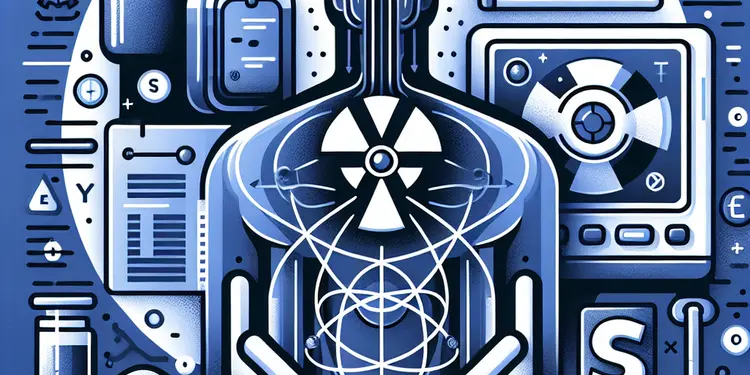
What is radiation therapy?
Relevance: 26%
What is Ketamine Infusion Therapy?
Ketamine infusion therapy is a medical treatment that involves administering low doses of ketamine intravenously to treat various mental health conditions. Originally developed as an anaesthetic in the 1960s, ketamine has found a new role in managing treatment-resistant depression, anxiety disorders, PTSD, and chronic pain.
How Does Ketamine Infusion Therapy Work?
The exact mechanism of ketamine's action in treating mental health conditions is not fully understood, but it is thought to involve the glutamate system in the brain. Ketamine acts on NMDA receptors, which are part of the glutamate system and play a critical role in synaptic plasticity, crucial for learning and memory. By modulating these receptors, ketamine is believed to help restore synaptic connections in the brain that can be impaired in mental health conditions.
What to Expect During a Ketamine Infusion Session
During a ketamine infusion session, a patient will typically be seated in a comfortable chair and hooked up to a monitor to track vital signs. The ketamine dose is usually administered over a period of 40 minutes to an hour. The patient is closely monitored throughout the session for any adverse effects. Patients often experience an altered state of consciousness or mild dissociative effects during the infusion, which typically wear off shortly after the session ends.
Who Can Benefit from Ketamine Infusion Therapy?
Ketamine infusion therapy is often considered for individuals who have not responded to traditional treatments for depression and other mood disorders. Patients with severe, treatment-resistant depression, PTSD, and certain forms of chronic pain may benefit from ketamine infusions. However, its use is carefully evaluated on a case-by-case basis by healthcare professionals.
Risks and Considerations
While ketamine infusion therapy can be highly effective for some patients, it is not without risks. Potential side effects include increased blood pressure, drowsiness, dizziness, and, in some cases, perceptual disturbances. It is crucial for patients to discuss their full medical history and any current medications with their healthcare provider to ensure ketamine infusion therapy is a safe option.
Regulation and Accessibility in the UK
In the UK, ketamine is classified as a Class B controlled substance. Ketamine infusion therapy is legally administered in a medical setting by qualified professionals. Patients interested in this therapy should consult with their GP or mental health provider, who can refer them to a specialist clinic if deemed appropriate. Public and private healthcare providers may offer ketamine infusion therapy, but its availability can vary depending on the region and healthcare system constraints.
What is Ketamine Infusion Therapy?
Ketamine infusion therapy is a medical treatment. It uses low doses of a medicine called ketamine. This medicine is given through a drip in your arm. It helps with mental health problems. Ketamine was first made in the 1960s to help with pain during operations. Now, it is used to help people with depression, anxiety, PTSD, and long-lasting pain.
How Does Ketamine Infusion Therapy Work?
Scientists are still learning about how ketamine helps with mental health. They think it affects a part of the brain called the glutamate system. Ketamine changes how the brain talks to itself, which can help fix problems in the brain. This can help people with mental health issues.
What to Expect During a Ketamine Infusion Session
When you have a session, you will sit in a comfy chair. You will be connected to a machine that checks your body, like your heartbeat. The ketamine is given slowly, usually for 40 minutes to an hour. During this time, you will be watched carefully to make sure you feel okay. Some people feel like they are dreaming or have funny thoughts, but this usually stops after the session.
Who Can Benefit from Ketamine Infusion Therapy?
This therapy can help people who feel very sad or worried and have tried other medicines that did not work. It can also help with PTSD and certain kinds of pain. Doctors look at each person to see if ketamine is the right choice for them.
Risks and Considerations
Ketamine therapy can help, but it can also have side effects. Some people might feel sleepy, dizzy, or have higher blood pressure. It is important to tell your doctor all about your health and any medicines you take. This helps make sure ketamine is safe for you.
Regulation and Accessibility in the UK
In the UK, ketamine is a controlled medicine. Only doctors and nurses in special clinics can give it. If you think this therapy could help you, talk to your doctor. They can tell you if it is right for you and help you find a clinic. Not all places offer ketamine therapy, so check what is available in your area.
Frequently Asked Questions
What is ketamine infusion therapy?
Ketamine infusion therapy is a medical treatment that involves administering low doses of ketamine intravenously to treat chronic pain and depression.
How does ketamine infusion therapy work?
Ketamine works by acting on NMDA receptors in the brain, which are involved in mood regulation and pain perception. It can help reset neural pathways and improve symptoms of depression and chronic pain.
What conditions can ketamine infusion therapy treat?
Ketamine infusion therapy can treat major depressive disorder, treatment-resistant depression, bipolar depression, PTSD, certain anxiety disorders, and chronic pain conditions.
Is ketamine infusion therapy safe?
Ketamine infusion therapy is generally considered safe when administered by a trained medical professional. However, like any treatment, it can have side effects, so monitoring by a healthcare provider is necessary.
What are the side effects of ketamine infusion therapy?
Common side effects may include dizziness, nausea, increased heart rate, and hallucinations. These effects are usually short-lived and can be managed by the healthcare provider.
How long does a ketamine infusion therapy session last?
A typical ketamine infusion session lasts about 40 minutes to an hour, but this can vary based on the individual and the condition being treated.
How quickly does ketamine infusion therapy work?
Many patients report feeling relief within hours to days after treatment, making it a fast-acting option compared to traditional antidepressants.
How many ketamine infusion sessions are needed?
A common initial course involves 6 sessions over 2-3 weeks, followed by maintenance sessions as needed. The exact regimen can vary depending on the individual and their response to treatment.
Is ketamine infusion therapy covered by insurance?
Coverage for ketamine infusion therapy varies widely among insurance providers, and many do not currently cover it for depression treatment. It's best to check with your insurance company.
Can everyone undergo ketamine infusion therapy?
Not everyone is a candidate for ketamine infusion therapy. A medical evaluation is necessary to determine if it is appropriate based on medical history and current condition.
What should I expect during a ketamine infusion session?
During a session, you will be monitored by a healthcare provider as the ketamine is administered intravenously. You may experience some temporary dissociation or altered perceptions.
Can ketamine be used to treat anxiety?
While primarily used for depression and chronic pain, ketamine has shown potential in treating certain types of anxiety, often co-occurring with depression.
Is ketamine infusion therapy addictive?
Ketamine has potential for misuse as a recreational drug, but addiction is uncommon when used medically under supervision and in therapeutic doses.
What is the difference between ketamine infusion therapy and esketamine?
Esketamine is a derivative of ketamine delivered as a nasal spray approved by the FDA for treatment-resistant depression, whereas ketamine infusion therapy involves intravenous administration of the ketamine compound.
How does ketamine infusion therapy compare to traditional antidepressants?
Ketamine acts much faster than traditional antidepressants, which can take weeks to have an effect, and it is often used when other treatments have failed.
Are there any long-term effects of ketamine infusion therapy?
Long-term effects are still being studied, but current research suggests that, when used in a controlled and supervised manner, long-term negative effects are minimal.
Can I drive after receiving a ketamine infusion?
Patients are advised not to drive or operate heavy machinery until the day after the infusion, as ketamine can cause cognitive and motor impairment temporarily.
What should I do to prepare for a ketamine infusion session?
Patients are often advised to avoid eating or drinking for several hours before the session and should follow specific instructions from their healthcare provider.
Are there alternative treatments to ketamine infusion therapy?
Other alternatives for treatment-resistant depression include ECT (electroconvulsive therapy), TMS (transcranial magnetic stimulation), and recently, esketamine nasal spray.
Who can administer ketamine infusion therapy?
Ketamine infusion therapy should be administered by a licensed healthcare provider with experience and training in using ketamine for therapeutic purposes.
What is ketamine infusion therapy?
Ketamine infusion therapy is a treatment that uses a medicine called ketamine. The medicine goes into your body through a slow drip, like a small stream, often using a needle in your arm. People can use it to help with pain or feeling very sad (depression).
If reading is hard, try using pictures to help understand. You can also ask someone to read it to you.
Ketamine infusion therapy is a medical treatment. In this treatment, doctors give small amounts of a drug called ketamine through a drip into your body. This helps with long-lasting pain and feeling very sad (depression).
What is ketamine infusion therapy and how does it help?
Ketamine infusion therapy is a treatment where medicine called ketamine is used to help people feel better. Doctors give this medicine through a tiny needle in your arm.
This treatment can help with sadness and pain. It works very quickly for some people.
If you want to know more, ask a doctor or a nurse. They can explain it to you in a way that's easy to understand.
For extra help, you can:
- Ask someone to read it to you.
- Use pictures to help understand.
- Listen to an audio version if available.
Ketamine helps the brain feel better by working on special parts called NMDA receptors. These parts help with how we feel and with pain. Ketamine can help change how we feel and help with depression and long-term pain.
What can ketamine treatment help with?
Ketamine treatment can help with feeling very sad, having sadness that doesn't get better with other treatments, feeling very up and down, feeling scared because of bad memories, some worried feelings, and pain that doesn't go away.
Is ketamine infusion therapy safe?
Is using ketamine safe?
Ketamine infusion therapy is usually safe when a doctor gives it. But, like all treatments, it can cause side effects. That’s why a healthcare provider needs to watch over it.
What can happen to your body with ketamine therapy?
Sometimes, people feel different when they have ketamine therapy. Here are some things that might happen:
- You might feel dizzy or lightheaded.
- Your mouth might feel dry.
- You could feel tired or sleepy.
- Your vision might be blurry for a little while.
If you are worried or if these things happen, tell your doctor or nurse. They are there to help you feel better.
It is good to have someone with you to support you or read these notes with you.
Sometimes, people might feel a bit dizzy, feel sick in the stomach, have a fast heartbeat, or see things that aren't there. These things usually go away quickly. Your doctor or nurse can help if they happen.
How long does a ketamine treatment take?
A ketamine treatment session usually takes about 45 minutes to 1 hour. During this time, you might feel sleepy or relaxed.
If you find it hard to understand, you can:
- Ask a doctor or nurse to explain.
- Use apps that read text out loud to help you understand better.
A ketamine session usually takes 40 minutes to 1 hour. But, it might be different for each person and their needs.
How fast does ketamine treatment work?
A lot of people feel better a few hours or days after getting the treatment. This means it works faster than regular medicine for feeling sad.
How many times do you need ketamine infusions?
A usual treatment starts with 6 visits over 2 to 3 weeks. After that, you might need more visits to keep feeling better. What you need can change because everyone is different and it depends on how you respond to the treatment.
Will my insurance pay for ketamine treatment?
Insurance companies are different. Some pay for ketamine treatment, but many do not pay for it to help with feeling sad or depressed. It is a good idea to call your insurance company and ask them.
Is ketamine infusion therapy okay for everyone?
Ketamine infusion therapy is not for everyone. A doctor needs to check your health and medical history to see if it is right for you.
What will happen in a ketamine session?
Having a ketamine session? Here’s what to expect:
- You will visit a doctor’s office or clinic.
- They will give you medicine called ketamine through a tiny tube in your arm. This is called an infusion.
- You might feel different or sleepy during the session.
- A nurse or doctor will be there to take care of you.
- The session usually lasts about 1 hour.
- You can ask questions if you feel unsure.
Using a timer or listening to calming music can help you relax.
During a session, a doctor or nurse will watch you. They will give you ketamine through a needle in your arm. You might feel a bit strange or see things differently for a short time.
Can ketamine help with feeling anxious?
Ketamine is a type of medicine.
Doctors sometimes use ketamine to help people who feel very anxious.
If you feel anxious, talk to your doctor.
Your doctor can tell you if ketamine is right for you.
Using drawing or music can also help calm anxious feelings.
Ketamine is a medicine. It helps people who feel very sad (this is called depression) or have pain that won't go away. Sometimes, it can also help people who feel very worried or scared (this is called anxiety). People who feel worried or sad can use ketamine if it will help them feel better.
Can ketamine infusion therapy make you want more?
Ketamine can be misused as a fun drug, but it's not easy to get hooked on it if a doctor gives it to you and you take the right amount.
What is the difference between ketamine infusion therapy and esketamine?
Ketamine and esketamine are types of medicine.
They can help people feel better if they are very sad or in pain.
Ketamine infusion therapy:
- This is when ketamine is given through a needle in the arm.
- The medicine goes into the blood slowly.
- A doctor watches to make sure everything is okay.
Esketamine:
- This is a special kind of ketamine.
- It comes as a nose spray.
- You can use it at the doctor's office.
If you find reading hard, try using:
- A friend or family member to help read with you.
- An audio tool that reads text out loud.
- Pictures or videos for more understanding.
Esketamine is a medicine you spray in your nose. It is like a special kind of medicine called ketamine. Doctors in the USA use it to help people who feel very sad and other treatments have not worked.
Ketamine infusion therapy is another way to use ketamine. It is given through a needle in your arm.
You can ask your doctor about these treatments if you need help with feeling sad. You can also talk to a counselor or use apps that help with feelings.
How is ketamine treatment different from regular medicine for feeling better?
Ketamine works quicker than other medicines that help with feeling sad. Those other medicines can take weeks to help. Doctors often use ketamine when other treatments don’t work.
What happens after using ketamine for a long time?
Ketamine is a drug that some doctors give to help with pain or depression.
It is important to know what can happen if you use ketamine for a long time.
Sometimes, using a lot of ketamine can affect things like your memory, how you feel, and how you think.
If you need help understanding this, you can talk to a doctor or use pictures and stories to learn more.
We are still learning about what happens if you use it for a long time. But, right now, experts say that if you use it safely and with help, it does not cause big problems later.
Can I drive after getting a ketamine treatment?
When you get a ketamine treatment, it might make you feel sleepy or dizzy. It is not safe to drive a car after your treatment. Ask someone you trust to take you home. You can also use public transport or a taxi. Give yourself time to rest and feel better before driving.
You can use tools like a calendar or set reminders to help plan your ride home. You can also talk to your doctor or nurse about how you feel after the treatment.
Patients should not drive a car or use big machines until the day after their treatment. This is because ketamine can make their thinking and moving harder for a short time.
How can I get ready for a ketamine infusion session?
Getting ready for a ketamine session is important. Here are some simple steps to help:
- Ask Questions: Talk to your doctor and ask any questions you have about the session.
- Relax: Try to be calm before your session. You can listen to music or take deep breaths.
- Bring Support: If you can, bring a friend or family member you trust to help you feel safe.
- Wear Comfortable Clothes: Wear clothes that make you feel good and relaxed.
- Use Tools: You can use things like a comfort blanket, stress ball, or favorite book to help you feel at ease.
Before your appointment, doctors usually say not to eat or drink for a few hours. Make sure to follow what your doctor tells you.
Here are some tips to help remember:
- Write down when you need to stop eating or drinking.
- Set a reminder on your phone or tablet.
- Ask someone you trust to help you remember.
Are there other treatments instead of ketamine infusion therapy?
Yes, there are other treatments you can try.
- Talk to a doctor about counseling. Talking to someone can help.
- Try relaxation exercises like deep breathing or yoga.
- Consider taking medicine your doctor suggests.
- Join a support group to meet others with the same problems.
Ask someone you trust to help you understand these options.
If someone has depression that is hard to treat, there are other things they can try. These include:
- ECT: This stands for electroconvulsive therapy. It is a special treatment done in a hospital.
- TMS: This stands for transcranial magnetic stimulation. This uses magnets to help the brain feel better.
- Esketamine nasal spray: This is a new type of medicine you spray in your nose.
Remember, it is important to talk to a doctor about what might be best.
Using a picture chart or speaking with someone who helps with reading can also make understanding easier.
Who can give ketamine infusion therapy?
A doctor or nurse who knows how to use ketamine should give you ketamine infusion therapy. They should know how to use it to help people feel better.
Useful Links
This website offers general information and is not a substitute for professional advice.
Always seek guidance from qualified professionals.
If you have any medical concerns or need urgent help, contact a healthcare professional or emergency services immediately.
- Ergsy carfully checks the information in the videos we provide here.
- Videos shown by Youtube after a video has completed, have NOT been reviewed by ERGSY.
- To view, click the arrow in centre of video.
- Most of the videos you find here will have subtitles and/or closed captions available.
- You may need to turn these on, and choose your preferred language.
- Go to the video you'd like to watch.
- If closed captions (CC) are available, settings will be visible on the bottom right of the video player.
- To turn on Captions, click settings .
- To turn off Captions, click settings again.
More Items From Ergsy search
-

What is ketamine infusion therapy?
Relevance: 100%
-

How is ketamine administered?
Relevance: 54%
-

What should I expect during a ketamine infusion?
Relevance: 53%
-

What is Ketamine?
Relevance: 49%
-

What conditions is ketamine used to treat?
Relevance: 46%
-

Are there any legal uses for ketamine?
Relevance: 45%
-

What are the medical uses of ketamine?
Relevance: 44%
-

How can I legally obtain ketamine for medical use?
Relevance: 43%
-

How is ketamine different from traditional antidepressants?
Relevance: 43%
-

Is ketamine addictive?
Relevance: 42%
-

How does ketamine work?
Relevance: 41%
-

Infliximab infusion (Remicade) for Crohns Disease at Addenbrookes NHS hospital
Relevance: 40%
-

Are there any treatment programs for ketamine addiction?
Relevance: 38%
-

How long do the effects of ketamine last?
Relevance: 38%
-

Is ketamine legal?
Relevance: 38%
-

Can ketamine be prescribed for mental health conditions?
Relevance: 38%
-

What is the potential for addiction with ketamine?
Relevance: 36%
-

Is ketamine a controlled substance?
Relevance: 35%
-

Is ketamine safe for everyone?
Relevance: 35%
-

Is Ketamine a Class B drug?
Relevance: 35%
-

What is the legal status of ketamine in Canada?
Relevance: 35%
-

What is the classification of ketamine?
Relevance: 34%
-

Is the production of ketamine regulated?
Relevance: 34%
-

Is it legal to import ketamine?
Relevance: 34%
-

Is ketamine considered a controlled substance in the United States?
Relevance: 34%
-

What precautions are necessary when using ketamine?
Relevance: 33%
-

What is the penalty for supplying ketamine in the UK?
Relevance: 33%
-

Can ketamine be used for recreational purposes legally?
Relevance: 33%
-

What is the penalty for possessing ketamine in the UK?
Relevance: 32%
-

What are the common side effects of ketamine?
Relevance: 32%
-

Does ketamine have long-term effects?
Relevance: 32%
-

How is ketamine used in veterinary medicine?
Relevance: 32%
-

What is the difference between ketamine and esketamine?
Relevance: 32%
-

Does the classification of ketamine differ between countries?
Relevance: 31%
-

What are the known side effects of ketamine usage?
Relevance: 31%
-

What does it mean for ketamine to be a Class B drug in the UK?
Relevance: 31%
-

Has ketamine's classification changed over time?
Relevance: 31%
-

Why was ketamine reclassified from Class C to Class B in the UK?
Relevance: 30%
-

How quickly can ketamine alleviate depression symptoms?
Relevance: 29%
-

What is radiation therapy?
Relevance: 26%


